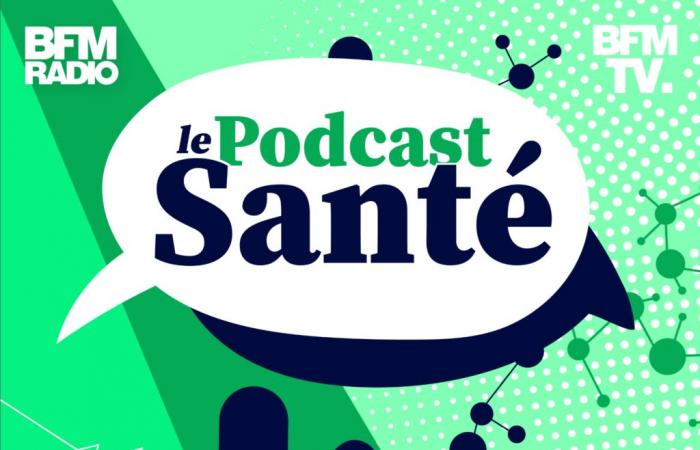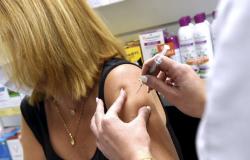The end of year celebrations are the occasion for big meals… but also for big stomach aches. Campylobacter, Salmonella, Escherichia coli… So many bacteria that can cause serious food poisoning. So how can you best prepare your holiday meals? Which foods are most at risk? What are the best cooking and storage methods? To answer all these questions, Margaux de Frouville and Alain Ducardonnet welcome Professor Laurent Beaugerie, gastroenterologist.
Gifted or precocious yesterday, HPI today, three letters for High Intellectual Potential which have invaded our society, particularly since the successful eponymous series. Around 2% of an age class would be affected, or one to two children per class. According to the definition of the World Health Organization, obtaining a score of 130 or more on this test would be enough to be designated HPI. In reality, it is an essential but insufficient step. What is an HPI profile? Are there more and more? What’s going on in their brains? How to distinguish the difficult child from the high potential? Overall, is HP a strength or a weakness? Professor Laurence Vaivre-Douret, neuropsychologist attached to the Necker-Enfants Malades University Hospital, research director at INSERM and Nathalie Clobert, clinical psychologist, author of ‘Received Ideas on High Potential’ published by Le Cavalier Bleu, explain everything on the microphone of Margaux de Frouville and Alain Ducardonnet.
There are around thirty of them and we use them to talk, eat and smile. Our teeth are useful to us all the time, without us necessarily being very interested in them when everything is going well. According to a recent survey, more than half of French people have not consulted a dentist for 2 years, perhaps for fear of pain. That’s good, because while waiting for your next appointment, we have a very reassuring specialist with us to answer all our questions: what is good brushing? Manual or electric? What are whitening toothpastes worth? Should you brush your tongue? What impact does our diet have? Why are they sensitive? Should you systematically remove your wisdom teeth? How to fight bad breath? To these very concrete questions, all the answers from Doctor Gérard Dupeyrat, stomatologist with a million subscribers on TikTok and author of “All my teeth up to 102 years old, are you serious?” published by Le courier du livre is the guest of Margaux de Frouville and Alain Ducardonnet.
“My knee hurts again, I can’t do my shopping anymore”, “My thumb joint hurts… ahhh my rheumatism again”. Who hasn’t heard these complaints or perhaps you yourself are concerned? There are 15 million French people who suffer from rheumatism and in the plural because there are different forms, osteoarthritis, arthritis, polyarthritis among others. Each time, the pain is present and if we do nothing it becomes chronic, which means that the impact on daily life on the quality of life is enormous, because functional discomfort and fatigue are added. What diseases are behind this term rheumatism? What tests are necessary, are we condemned to medication for life? Can diet help? Will we one day overcome or prevent osteoarthritis? Many questions for two specialists Jérémie Sellam, professor of rheumatology at Saint-Antoine hospital and Sébastien Czernichow, professor and head of the HEGP nutrition department, they are publishing together with Solar a book “Osteoarthritis, arthritis, I treat myself by eating! ” are the guests of Margaux de Frouville and Alain Ducardonnet.
A lack of energy, vitality, enthusiasm, small mood swings, a certain gloom. Are you affected by seasonal depression, also called winter blues? 10% of French people would be. It is a disorder that does not have to last, unlike depression. What are the specific differences? What are the symptoms? How to overcome these blues? Professor Pierre Philip, head of the sleep medicine department at Bordeaux University Hospital, researcher at the CNRS, and author of Antidéprime published by Albin Michel, is the guest of Margaux de Frouville and Alain Ducardonnet.
Dyslexia, dysorthography, dyscalculia, dyspraxia, dysphasia… These language and learning disorders affect nearly 7 million people in France, or around 10% of the French population. Among them, nearly a million children, which corresponds on average to one or two students per class. Despite the frequency of these disorders, their treatment is not always known or adapted. You will hear the testimony of Amandine Robejean, mother of Katelya, 7 and a half years old. Initially, how to diagnose? What are the warning signs? What does support consist of? Catherine Grosmaître, neuropsychologist and head of the Reference Center for Language and Learning Disorders at Necker Hospital, in Paris, and Elodie Bernard, from the start-up Poppins, are the guests of Margaux de Frouville and Alain Ducardonnet.
40,000 deaths each year due to ambient air pollution. Chronic pollution promotes diabetes, obesity and allergies. Margaux de Frouville and Alain Ducardonnet receive Fabien Squinazi, medical biologist.
It was a high-profile trial, which highlighted and made concrete the notion of chemical submission. That of the Mazan rapes, or the ordeal of Gisèle Pelicot, raped by her husband and dozens of men after being drugged. For 10 years, she suffered absences, complained of being exhausted and consulted doctors for gynecological pain, but no one will put into words the horror she suffered. It was ultimately the investigators who revealed to her the attacks of which she was the victim. So what to do when in doubt, what is chemical submission? Who may be affected? Is there a liberation of speech? What assistance exists? To answer these questions Margaux de Frouville and Alain Ducardonnet receive Sandrine Josso, MP in charge of a mission on this subject, and Johanna Rozenblum, clinical psychologist and BFMTV consultant.
Guillaume Robic was 42 years old and had a hectic life when he suffered a stroke. Like the 150,000 stroke victims each year in France, Guillaume had to relearn how to walk, swim, run… So, what is a stroke? How to recognize the first signs for rapid treatment? And above all, how to learn to live again after the accident? Guillaume Robic, author of “A stroke and having to start all over again” and Doctor Philippa Lavallée, neurologist and head of department of the stroke reception and treatment center at Bichat hospital.






